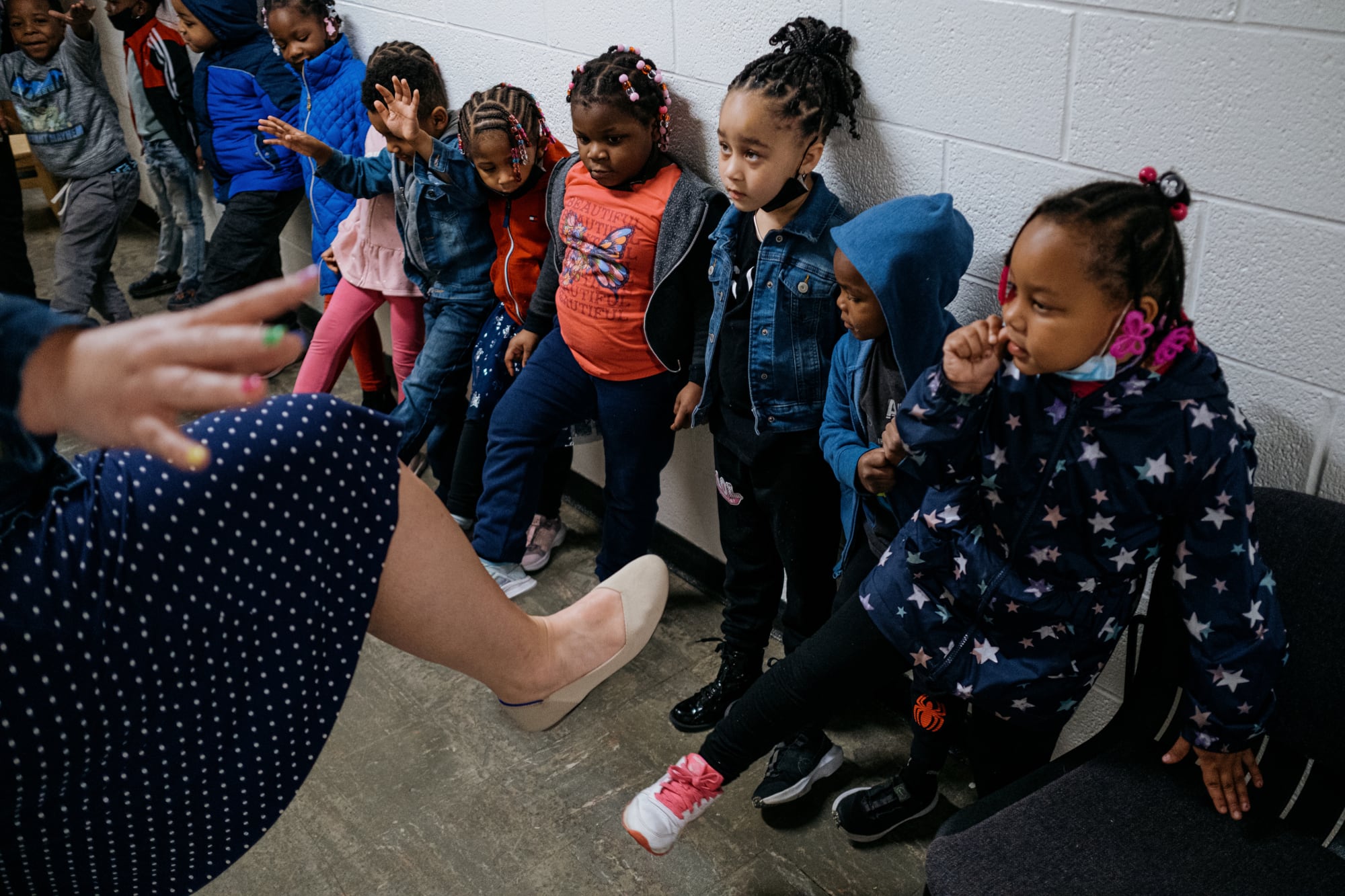Michigan lost 637 child care programs since the start of the pandemic, a 7% loss that exacerbated families’ difficulties finding child care in many parts of the state.
Michigan officials are betting they can begin to reverse that trend by helping would-be providers navigate an opening process that can be dizzyingly complex.
A new initiative, Our Strong Start, pairs child care entrepreneurs with a staffer from the state licensing agency who helps with paperwork and obtaining inspections.
Our Strong Start seeks to address problems raised in a recent MuckRock report, “Disappearing Day Care,” which found that Michigan’s child care supply is even more limited than experts thought. There are about 264,000 slots available for zero to five-year-olds olds, while Michigan is home to more than 559,000 children under the age of five.
Child care providers were the first educators to return to work in person during the pandemic. While federal relief funds helped many programs stay open, some providers opted to shut down rather than deal with the challenges of COVID-19 on top of the already-precarious economics of Michigan’s child care system.
The state has tapped federal COVID-19 relief dollars to help replenish the child care supply, noting that families — and especially women — can be pushed out of the workforce if they don’t have a safe place to send their children during the day.
“Since the pandemic, 150,000 women still haven’t come back into the workforce,” said Emily Laidlaw, director of child care licensing for the Michigan Department of Licensing and Regulatory Affairs. “A lot of that barrier is due to child care.”
Using $100 million of $1.4 billion in federal child care aid, Gov. Gretchen Whitmer said she wants to help open 1,000 child care programs by 2024. The money will pay for renovations and other startup costs, and will also pay for four navigators at LARA who will help prospective providers through the process of starting a new program. These staffers will be based in four regions of the state, a recognition that the challenges of opening new programs vary between communities.
Laidlaw said that 300 potential providers attended a webinar about Our Strong Start, and 400 people filled out a form to get in touch with a navigator.
Child care entrepreneurs who want help applying for a license can fill out the form here.
Keith Butler, youth pastor at Community Christian Fellowship, is working to open a new child care program to address a shortage of care in the church’s neighborhood on Detroit’s east side.
“I’m looking to fill a need, especially now as parents go back to work,” he said.
The church wants to house a child care program for 30 to 50 children ages two to 12. With help from licensing officials, Butler has already met zoning requirements and had fire officials walk through the proposed space to check for safety hazards. They hope to be licensed within three months.
“I can’t say I was expecting bad service necessarily, but I wasn’t expecting this,” he said. “They’ve been a godsend.”
Koby Levin is a reporter for Chalkbeat Detroit covering K-12 schools and early childhood education. Contact Koby at klevin@chalkbeat.org.
Luca Powell and Derek Kravitz produced the investigative report “Disappearing Daycare” for MuckRock. You can reach them at derek@muckrock.com.






